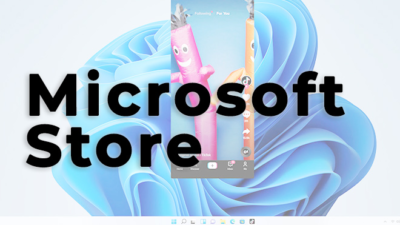Shopify Store Development: A Stepping Stone to E-commerce Success

As the e-commerce landscape grows more competitive, selecting the right platform to power your online store becomes paramount. Among the myriad of options, Shopify has emerged as a leading choice for businesses, both budding and established. But what makes Shopify store development the go-to option for so many retailers? Let’s dive into the nuances of this platform and unveil the benefits it brings to the digital marketplace.
Why Choose Shopify?
1. User-Centric Approach: One of Shopify’s standout attributes is its user-friendly interface. Designed with non-tech-savvy users in mind, it ensures that even those new to e-commerce can easily navigate, set up, and manage their online store.
2. Scalability: Whether you’re a startup dipping your toes into e-commerce or a sprawling enterprise with thousands of products, Shopify caters to all. As your business grows, Shopify can effortlessly scale alongside, accommodating increased traffic and sales.
3. Comprehensive Toolset: Shopify comes equipped with an array of built-in tools. From inventory management and automated tax calculations to diverse payment gateway integrations, it covers a broad spectrum of e-commerce necessities.
4. Aesthetic Flexibility: Shopify offers a rich library of themes, curated to suit various industries and brand personas. These themes are not only visually appealing but are also optimized for mobile devices, ensuring a seamless shopping experience.
5. Security and Reliability: With the responsibility of handling customer data and transactions, security is non-negotiable. Shopify is renowned for its robust security measures and consistent uptime, ensuring that your store remains trustworthy and accessible.
Embarking on Shopify Store Development
1. Theme Selection: Begin by choosing a theme that resonates with your brand’s aesthetic and values. While many quality themes are free, premium options offer more advanced features and design capabilities.
2. Product Listing: Adding products is a breeze on Shopify. With a structured interface, you can incorporate product images, descriptions, prices, and more. Variants, like different sizes or colors, can also be easily managed.
3. Customization: While Shopify themes are ready-to-use, they’re also customizable. Through the drag-and-drop interface or by diving into the code, you can tweak the design, layout, and functionalities to better align with your vision.
4. Payment & Shipping Setup: Shopify streamlines the often complex process of setting up payment gateways and shipping methods. With a few clicks, you can integrate popular payment processors and define shipping rates or opt for real-time carrier shipping rates.
5. Plugins and Extensions: The Shopify App Store houses thousands of apps that can extend your store’s capabilities. From SEO tools and marketing automation to customer reviews and loyalty programs, the possibilities are vast and varied.
Conclusion
Shopify store development offers a blend of simplicity and sophistication, making it a sought-after choice for e-commerce entrepreneurs worldwide. It eliminates much of the technical friction associated with setting up an online store, allowing business owners to focus on what they do best – crafting quality products and fostering customer relationships.
As digital retail continues its upward trajectory, platforms like Shopify play an instrumental role in democratizing e-commerce, providing businesses of all sizes with the tools and platforms to thrive in the digital age.
Research Snipers is currently covering all technology news including Google, Apple, Android, Xiaomi, Huawei, Samsung News, and More. Research Snipers has decade of experience in breaking technology news, covering latest trends in tech news, and recent developments.











